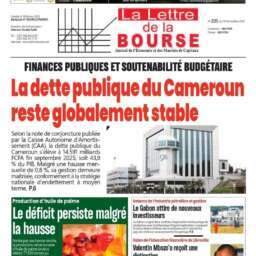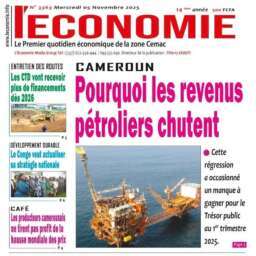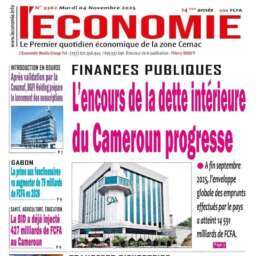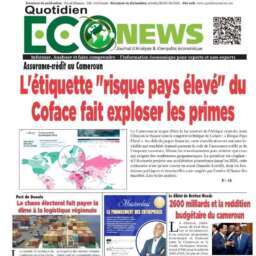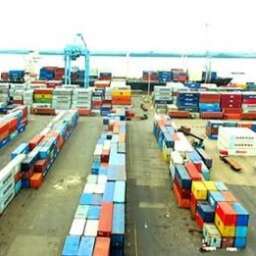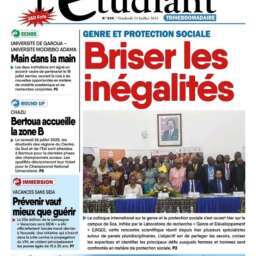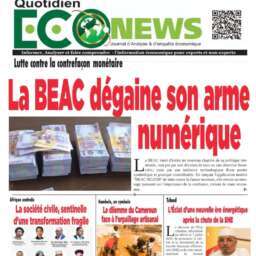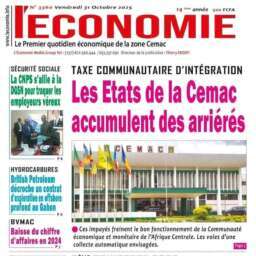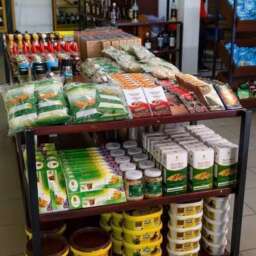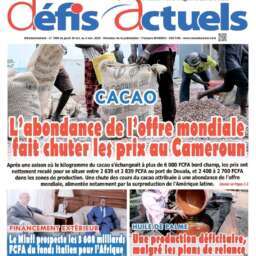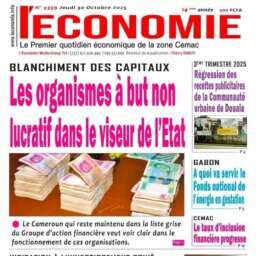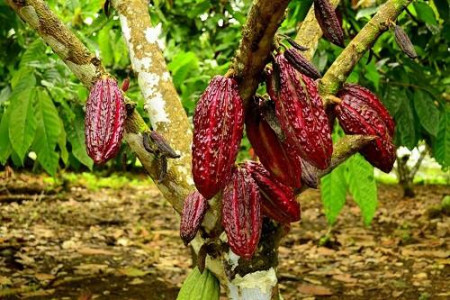(Business in Cameroon) – On August 28 in Yaoundé, the Cameroon Cocoa and Coffee Interprofessional Council (CICC) signed an agreement to share georeferenced data for cocoa and coffee farms. This step was taken in preparation for the European Union’s new deforestation regulation, which will soon come into effect.
The agreement involves six cocoa exporters: Telcar Cocoa (Cargill’s local trading partner and market leader), Ofi Cam (a subsidiary of Olam International), Sic Cacaos (part of Switzerland’s Barry Callebault), Atlantic Cocoa (owned by Ivorian Kone Donsongu), Cameroonian Neo Industry, and the Cocoa Development Fund (Fodecc), which is Cameroon’s cocoa and coffee bank. The signing took place in the presence of the Minister of Trade, Luc Magloire Mbarga Atangana, and the Minister of Agriculture and Rural Development, Gabriel Mbaïrobe. Jean-Marc Chataigner, head of the EU delegation in Cameroon, was also present.
The new platform, overseen by the CICC, will centralize geolocation data for cocoa and coffee farms. This database will provide detailed maps, helping exporters ensure their products meet European sustainability standards. Josiane Tchoungui, General Manager of Atlantic Cocoa, mentioned that the operators agreed to share their data for the benefit of the entire industry. “We agreed to have a shared platform for all geolocation data for all cocoa sourced from Cameroon. Small operators will input data into the platform through the CICC whenever they have shipments. They’ll have access to information about the cocoa they’ve purchased. We are fully confident in the process that’s been put in place, and we’re happy to ensure that Cameroon meets this regulation,” she said in a statement to private broadcaster Equinoxe TV.
The Minister of Trade emphasized that this initiative aims to protect small-scale local producers who might be at risk of losing out due to the costs linked to the new requirements. Sharing data will help maintain their access to the European market while boosting Cameroon’s competitiveness internationally. Luc Magloire Mbarga Atangana also urged the EU to consider Cameroon’s specific circumstances when reviewing the regulation in two years. He called for recognition of the country’s efforts in forest preservation and agroforestry practices and suggested adjusting prices to reflect compliance costs. Jean-Marc Chataigner, the EU ambassador, praised this collaboration as a successful model of public-private partnership. He expressed support for Cameroon’s efforts to implement sustainable production practices and confirmed that the EU would back these initiatives.
Starting January 1, 2025, the EU’s deforestation regulation will ban the import of cocoa from land deforested after December 31, 2020. Producers will need to provide documentation proving their products comply with traceability and sustainability requirements. With this new platform, Cameroon is preparing to meet these standards and maintain its market position in Europe.
According to the National Institute of Statistics (INS), Cameroon’s raw cocoa exports to the EU rose by 18.6% in 2023, generating CFA263.9 billion in revenue, accounting for 17.3% of exports to the European market. Cocoa-based products like cocoa butter and cocoa paste also contribute to exports, representing 3.3% and 4.2% of total exports to the EU, respectively.




